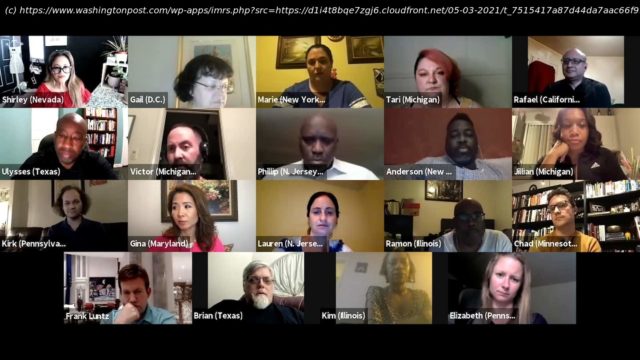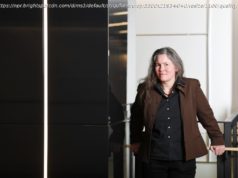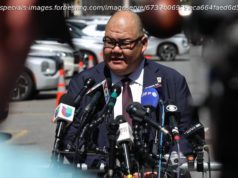The White House and public health experts are studying the Americans who went from „no“ to „yes.“
Kim Simmons, a 61-year-old small-business owner in Illinois, vividly remembers the moment she went from vaccine skeptic to vaccine-ready: watching a Johns Hopkins University doctor on C-SPAN make the case for why the shots are safe. For Lauren Bergner, a 39-year-old homemaker in New Jersey, it was when she realized it would make it easier for her family to attend New York Yankees games, after the team announced fans would need to show proof of a negative coronavirus test or that they had been vaccinated. And for Elizabeth Greenaway, a 34-year-old communications consultant in Pennsylvania, it was the sudden fear that if she got sick, she wasn’t sure who would take care of her 2-year-old daughter, who has a rare health condition. “Thinking about herd immunity, thinking about my daughter, thinking about all of that, I just realized — it’s about being a part of something bigger than yourself,” said Greenaway, who’s had to cut back on work to care for her daughter. Simmons, Bergner and Greenaway are among the growing number of vaccine skeptics turned vaccinated Americans, a sign of hope amid the slowing pace of vaccinations nationwide. Almost half of all adults have yet to receive a first shot although they are now eligible, and the rolling rate of new shots has dropped to its lowest level since mid-March. The emergence of these mind-changers suggests that at least some vaccine-wary Americans are willing to reconsider when their concerns are addressed by those they regard as credible. along with those of 16 other former skeptics who joined a focus group last week — have drawn intense interest from White House officials and public health experts, hoping to re-create those moments for the tens of millions of Americans who remain in the “no” camp. Experts fear that failing to achieve high levels of immunity could prolong the pandemic in the United States, particularly if unvaccinated people continue to be infected and the virus continues to mutate as it spreads. “I think we should all look at India, and we should not be so arrogant as to believe that it could not happen here,” said Brian Castrucci, head of the de Beaumont Foundation, the public health organization that helped convene last week’s focus group and several prior sessions, pointing to that country’s surging outbreak. Lessons from the focus groups and accompanying polling also informed a new series of public service announcements produced by the de Beaumont Foundation and featuring Republican doctors in Congress, which are set to be released Monday. While some vaccine skeptics have panned pitches from politicians — including high-profile PSAs starring former presidents Barack Obama, George W. Bush and Bill Clinton — the GOP lawmakers say they believe their appeals will resonate with a conservative base that’s disproportionately resistant. About a quarter of adults say they’re not planning to get vaccinated, including about 40 percent of people who lean Republican, according to a Washington Post-ABC poll released last week. “What separates us from the former presidents is we’re all physicians and health-care providers,” said Rep. Brad Wenstrup (R-Ohio), head of the GOP Doctors Caucus, whose members appear in the ads. “And so we’re doing the ads in white coats, because that’s what people trust.” Alice Chen, a senior adviser for the vaccine equity advocacy organization Made to Save, credited the wave of efforts trying to win over holdouts, saying the cumulative effects laid the ground for breakthroughs.






